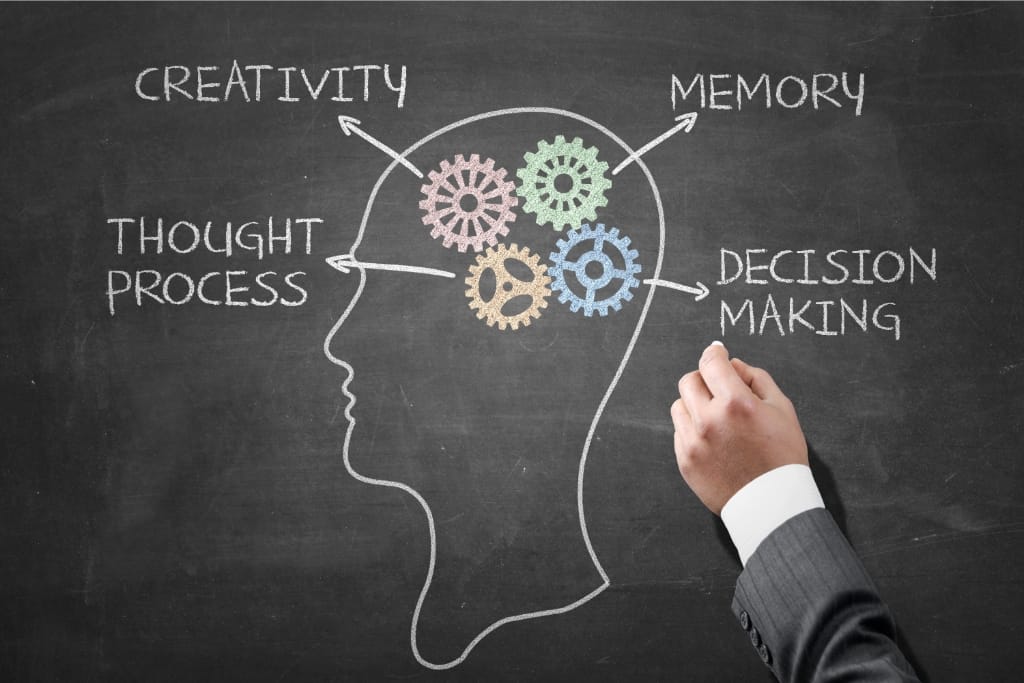Ever walked into a room and completely forgotten why you went there?
Or struggled to remember someone's name moments after being introduced?
You're not alone.
Short-term memory lapses happen to everyone, but they don't have to be a permanent part of your daily experience.
Short-term memory serves as your brain's temporary workspace, holding information for anywhere from 15 to 30 seconds.
Unlike long-term memory, which can store information indefinitely, short-term memory has limited capacity and duration.
But here's the good news: you can strengthen it.
We will dive into ten evidence-based techniques that can help you improve your short-term memory.
From simple lifestyle changes to specific mental exercises, these strategies have been tested by researchers and proven effective by countless individuals looking to sharpen their cognitive abilities.
Understanding Short-Term Memory
Before diving into improvement techniques, it's helpful to understand how short-term memory works.
Your brain processes thousands of pieces of information every day. Short-term memory acts like a filter, temporarily holding onto relevant details while discarding what seems unimportant.
This system typically holds between five and nine pieces of information at once, often referred to as the "magic number seven."
When new information enters, it either gets transferred to long-term memory through repetition and association or it gets pushed out to make room for newer data.
Several factors can impact short-term memory performance, including stress, lack of sleep, multitasking, and aging.
The techniques below address these issues while also providing direct ways to enhance your memory capacity.
1)) Practice The Chunking Method
Chunking involves breaking down large amounts of information into smaller, manageable groups.
Instead of trying to remember a 10-digit phone number as individual digits, you naturally chunk it into three parts: area code, prefix, and line number.
Apply this technique to any information you need to remember. Shopping lists become easier when you group items by store section.
Long passwords become more memorable when you break them into smaller segments.
Your brain processes these chunks as single units, effectively increasing your memory capacity.
To practice chunking, start with simple sequences like random numbers or letters.
Write down a 12-digit sequence, then group it into three sets of four digits. Notice how much easier it becomes to recall.
2)) Use The Method Of Loci
Also known as the memory palace technique, the method of loci involves associating information with specific locations in a familiar space.
Ancient Greek and Roman orators used this method to remember long speeches without notes.
Choose a location you know well—your home, office, or regular walking route.
Mentally walk through this space, placing each piece of information you want to remember at specific landmarks.
The more vivid and unusual the associations, the better they'll stick.
For example, if you need to remember to buy milk, eggs, and bread, you might visualize a cow sitting on your front porch (milk), eggs scattered across your hallway floor, and a loaf of bread on your kitchen counter. The spatial organization provides a logical sequence for recall.
3)) Engage Multiple Senses
Memory improves dramatically when you engage multiple senses during learning.
Rather than just reading information silently, try saying it aloud, writing it down, or creating visual associations.
This multi-sensory approach creates multiple pathways to the same information in your brain.
If one pathway becomes blocked or unclear, others remain available for retrieval.
Research shows that students who engage multiple senses during study sessions demonstrate significantly better recall than those who rely on single-sense learning.
Practice this by creating mental images for abstract concepts, using different colored pens for notes, or incorporating movement while reviewing information.
The more senses you involve, the stronger your memory traces become.
4)) Implement Spaced Repetition
Spaced repetition involves reviewing information at increasing intervals over time.
Instead of cramming everything into one session, you spread out your practice sessions, allowing your brain to consolidate memories between reviews.
Start by reviewing new information after a few minutes, then again after a few hours, then the next day, and so on.
Each successful recall strengthens the memory trace and extends the time until the next review is needed.
This technique works particularly well for learning new vocabulary, names, or technical terms.
Digital apps like Anki or Quizlet use spaced repetition algorithms to optimize your review schedule, but you can also create your system using physical flashcards or a simple calendar.
5)) Prioritize Quality Sleep
Sleep plays a crucial role in memory consolidation. During sleep, your brain processes and organizes the day's information, transferring important details from short-term to long-term memory storage.
Aim for seven to nine hours of sleep per night, and try to maintain consistent sleep and wake times.
Even short naps can boost memory performance. A 20-minute nap can help consolidate recently learned information and improve your ability to form new memories.
Create a sleep-friendly environment by keeping your bedroom cool, dark, and quiet.
Avoid screens for at least an hour before bedtime, as blue light can interfere with your natural sleep cycle.
6)) Exercise Your Brain And Body
Physical exercise increases blood flow to the brain and promotes the growth of new brain cells.
Regular aerobic exercise has been shown to improve memory performance and protect against age-related cognitive decline.
Mental exercises are equally important. Strategy games, puzzles, and learning new skills create new neural pathways and strengthen existing ones.
The key is to choose activities that challenge you without causing overwhelming frustration.
Try incorporating both types of exercise into your routine. Take a brisk walk while mentally reviewing information you want to remember.
Play memory games during your commute. Learn a new language using an app such as Babbel or a musical instrument to give your brain a comprehensive workout.
7)) Reduce Stress And Practice Mindfulness
Chronic stress releases hormones that can impair memory formation and retrieval.
High levels of cortisol, the primary stress hormone, can damage brain cells in areas responsible for memory.
Mindfulness meditation has been shown to reduce stress and improve working memory capacity.
Even brief meditation sessions can enhance your ability to focus and retain information.
The practice helps you become more aware of your mental state and better able to direct your attention where it's needed.
Start with just five minutes of daily meditation. Focus on your breath, and when your mind wanders, gently bring your attention back.
This simple practice strengthens your ability to concentrate and reduces the mental noise that can interfere with memory formation.
8)) Create Meaningful Associations
Your brain excels at remembering information that has personal meaning or emotional significance.
Transform neutral information into something personally relevant by creating connections to your own experiences, interests, or emotions.
When meeting new people, try to associate their names with someone you already know or a distinctive feature.
For abstract concepts, create stories or scenarios that make the information more memorable.
The more personal and emotionally engaging the association, the better it will stick.
This technique works particularly well for remembering numbers. Transform dates into ages of family members, phone numbers into mathematical relationships, or prices into familiar reference points.
9)) Organize Information Strategically
Well-organized information is easier to remember than random facts.
Look for patterns, categories, or logical sequences in the material you're trying to remember.
Create outlines, mind maps, or hierarchical structures that show relationships between different pieces of information.
When studying or preparing for presentations, organize your materials in a logical flow.
Use headings, bullet points, and visual cues to create a clear structure. This organization provides a framework that makes retrieval more systematic and reliable.
Color-coding can also enhance organization. Assign different colors to different categories or types of information.
This visual organization helps your brain quickly locate and access specific details when needed.
10)) Stay Hydrated And Eat Brain-Healthy Foods
Proper nutrition and hydration directly impact cognitive function. Dehydration, even mild levels, can impair attention and memory.
Aim to drink water regularly throughout the day rather than waiting until you feel thirsty.
Certain foods have been shown to support brain health and memory function.
Omega-3 fatty acids found in fish, walnuts, and flaxseeds support brain cell structure.
Antioxidants in berries, dark chocolate, and leafy greens protect against oxidative stress that can damage brain cells.
Limit processed foods, excessive sugar, and alcohol, which can interfere with memory formation.
Instead, focus on whole foods that provide steady energy and essential nutrients for optimal brain function.
Conclusion
Improving short-term memory isn't about perfecting one technique—it's about building a comprehensive toolkit of strategies you can use in different situations.
Some techniques will work better for you than others, depending on your learning style, lifestyle, and specific memory challenges.
Start by experimenting with two or three techniques that appeal to you most.
Practice them consistently for at least a week before adding new strategies. As these techniques become habits, you'll find yourself naturally using them in daily situations where memory matters most.
Memory improvement is a gradual process. Be patient with yourself and celebrate small victories along the way.
Each time you successfully remember something using these techniques, you're strengthening your overall memory capacity and building confidence in your cognitive abilities.
The investment you make in improving your short-term memory will pay dividends across all areas of your life, from professional success to personal relationships.
Start with one technique today, and begin building the sharper, more reliable memory you deserve.
Related Articles and Guides:
Download Our Free E-book!








